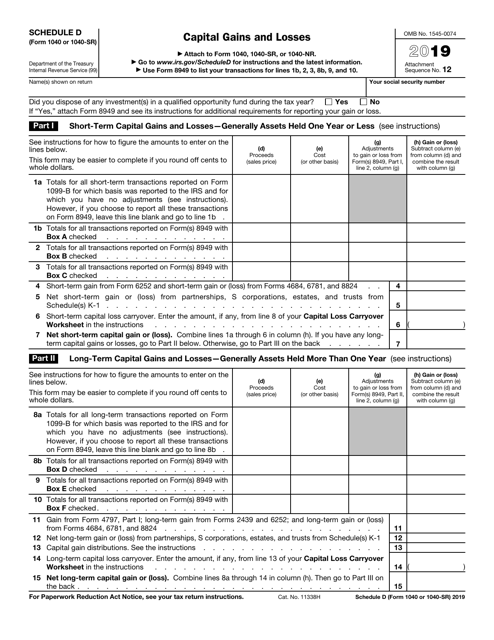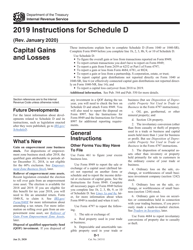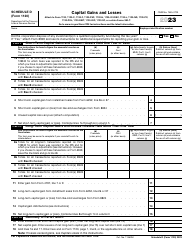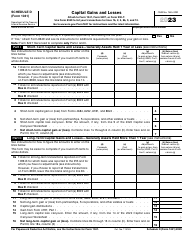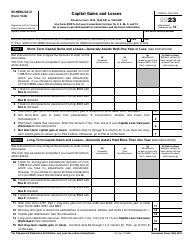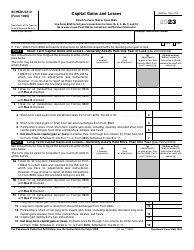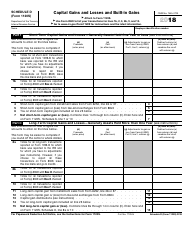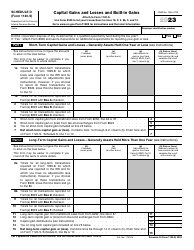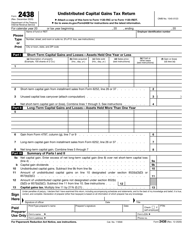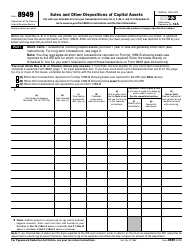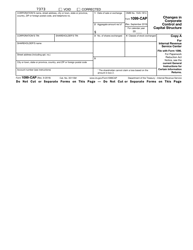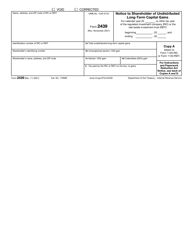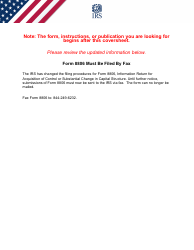This version of the form is not currently in use and is provided for reference only. Download this version of
IRS Form 1040 (1040-SR) Schedule D
for the current year.
IRS Form 1040 (1040-SR) Schedule D Capital Gains and Losses
What Is IRS Form 1040 (1040-SR) Schedule D?
This is a tax form that was released by the Internal Revenue Service (IRS) - a subdivision of the U.S. Department of the Treasury. The document is a supplement to IRS Form 1040, and IRS Form 1040-SR. Check the official IRS-issued instructions before completing and submitting the form.
FAQ
Q: What is IRS Form 1040?
A: IRS Form 1040 is a tax return form used by individuals to report their annual income and calculate their tax liability.
Q: What is the purpose of Form 1040-SR?
A: Form 1040-SR is a simplified version of Form 1040 designed specifically for seniors who are 65 or older.
Q: What is Schedule D?
A: Schedule D is an additional form that is attached to Form 1040 or 1040-SR and is used to report capital gains and losses from the sale or exchange of assets.
Q: What are capital gains and losses?
A: Capital gains are profits earned from selling assets such as stocks, bonds, or real estate. Capital losses are incurred when the sale of those assets results in a loss.
Q: Why do I need to report capital gains and losses?
A: You need to report capital gains and losses to determine if you owe any taxes on the profits you made from selling assets or if you can claim a loss to offset other taxable income.
Q: How do I report capital gains and losses on Schedule D?
A: You need to gather information about your asset sales, including the purchase and sale dates, cost basis, and sale price. Then, you'll fill out the appropriate sections on Schedule D and calculate the net gain or loss.
Q: What is the tax rate on capital gains?
A: The tax rate on capital gains depends on various factors such as your income level and the type of asset sold. It can range from 0% to 20%.
Q: Do I need to file Schedule D if I had no capital gains or losses?
A: If you had no capital gains or losses to report for the tax year, you may not need to file Schedule D. However, you should consult with a tax professional or refer to the IRS guidelines for your specific situation.
Form Details:
- A 2-page form available for download in PDF;
- This form cannot be used to file taxes for the current year. Choose a more recent version to file for the current tax year;
- Editable, printable, and free;
- Fill out the form in our online filing application.
Download a fillable version of IRS Form 1040 (1040-SR) Schedule D through the link below or browse more documents in our library of IRS Forms.
